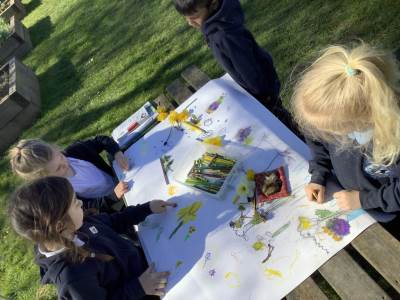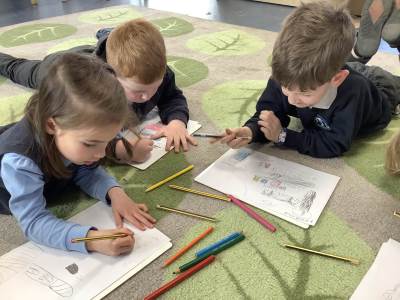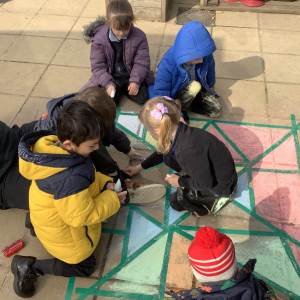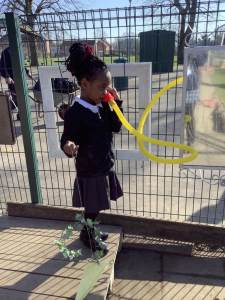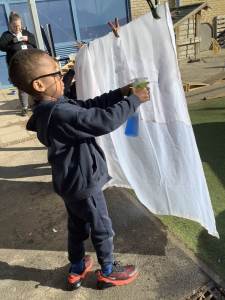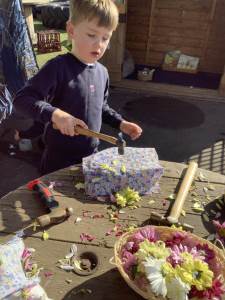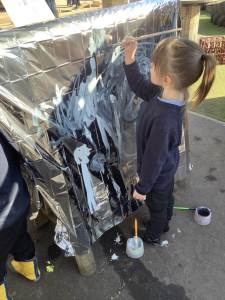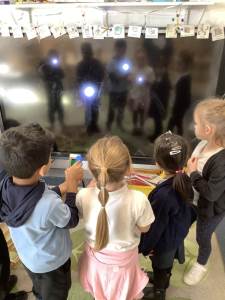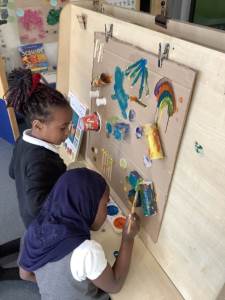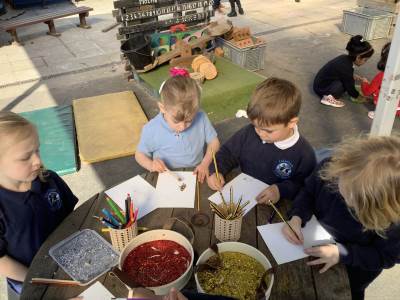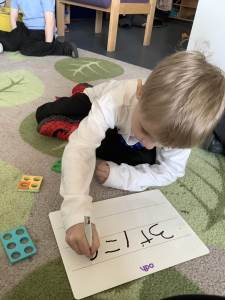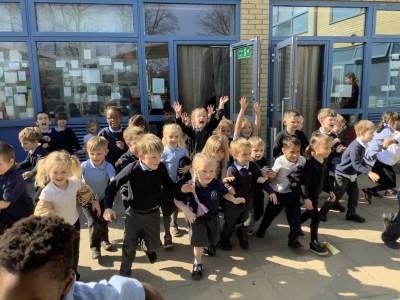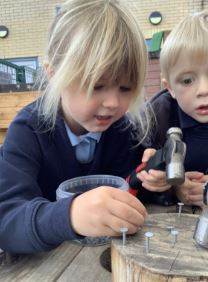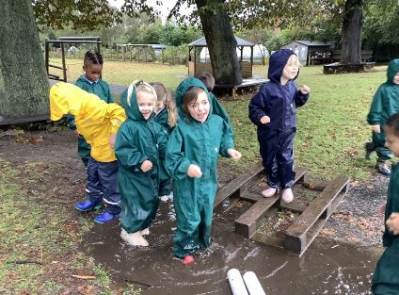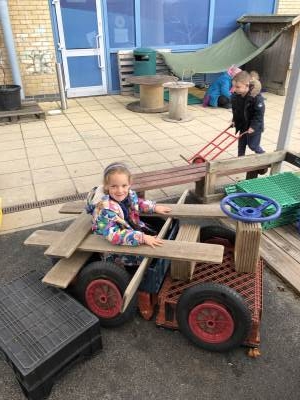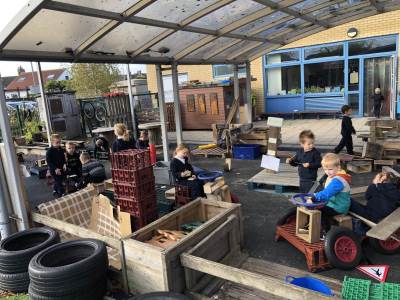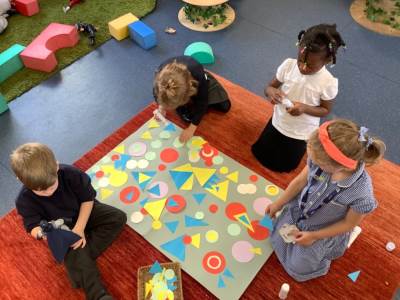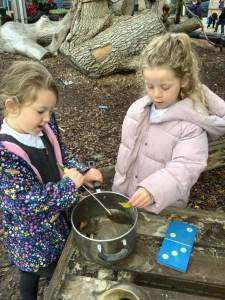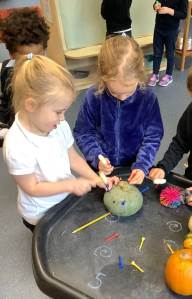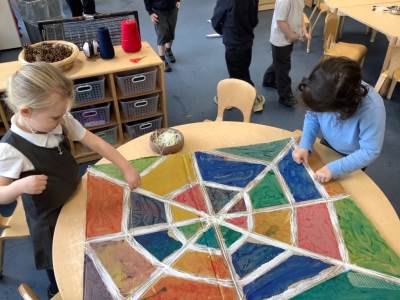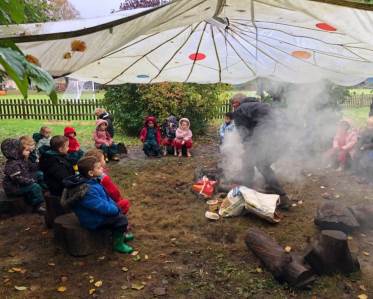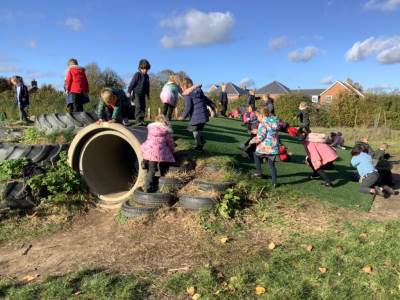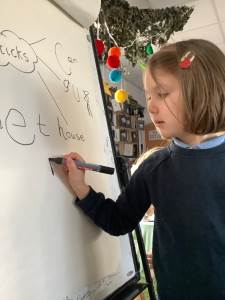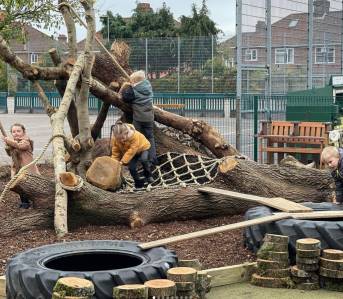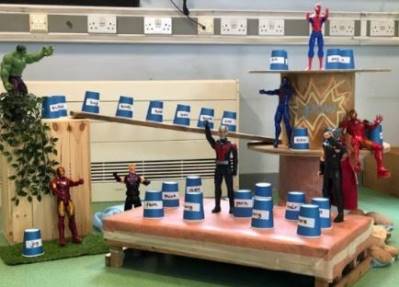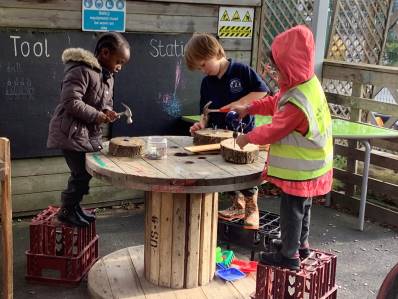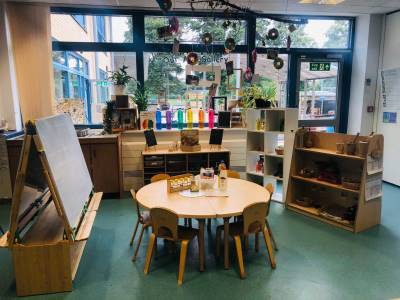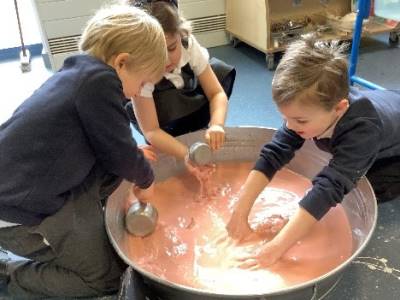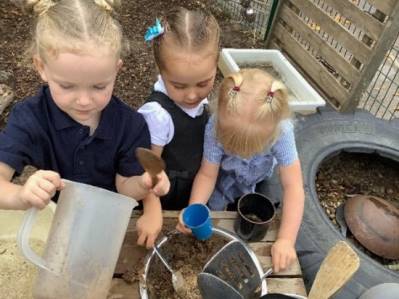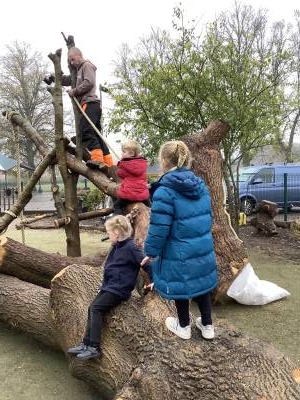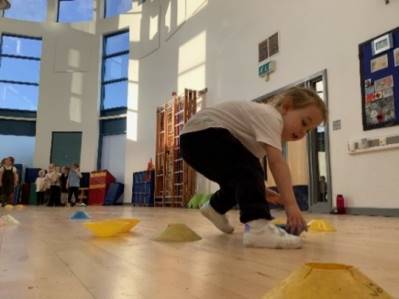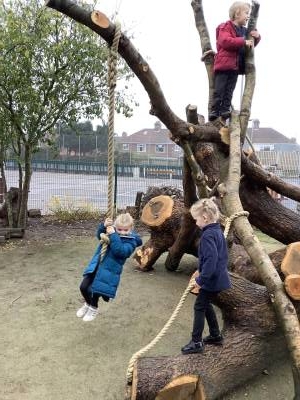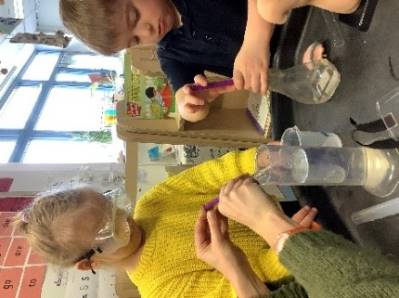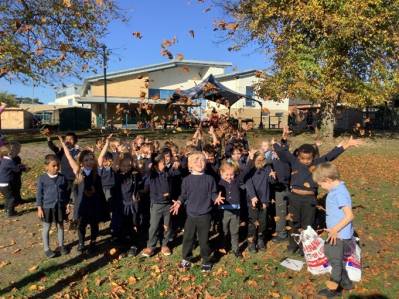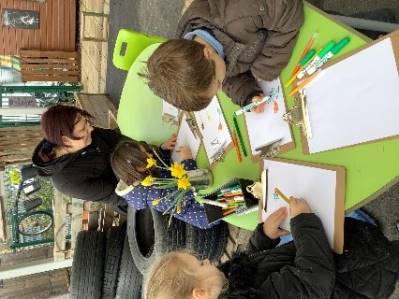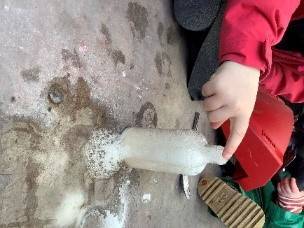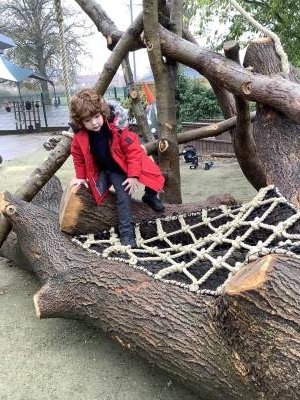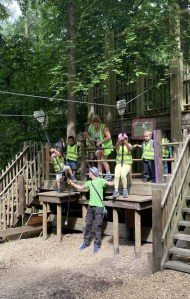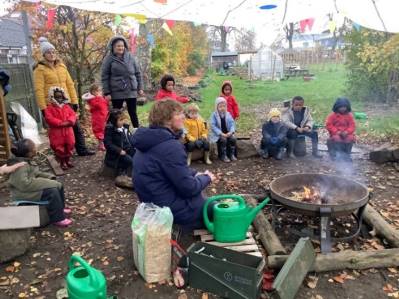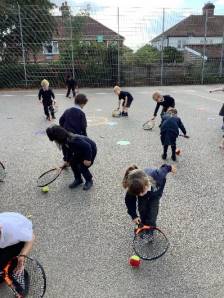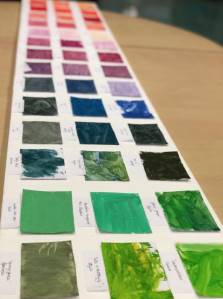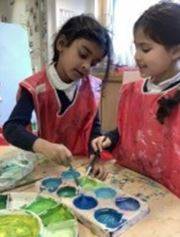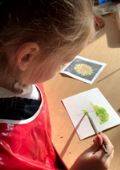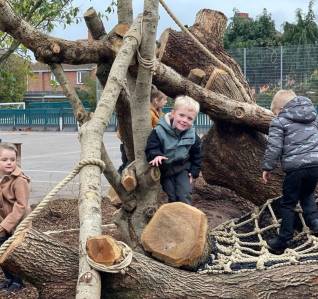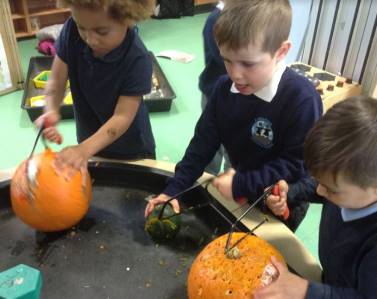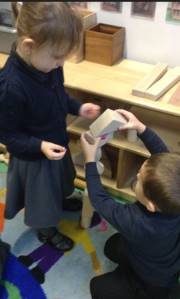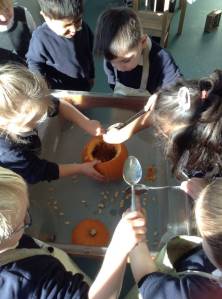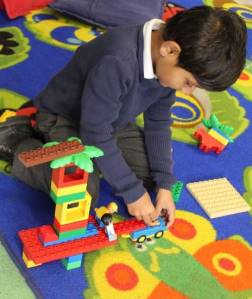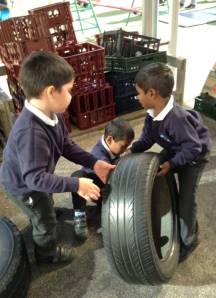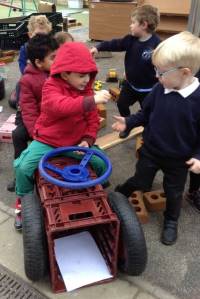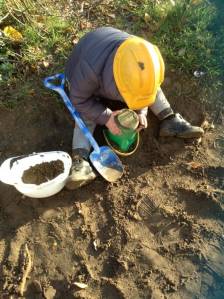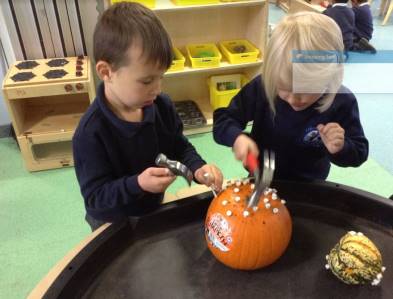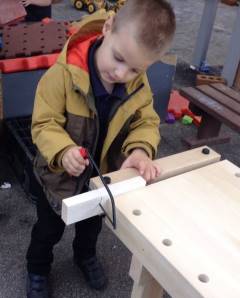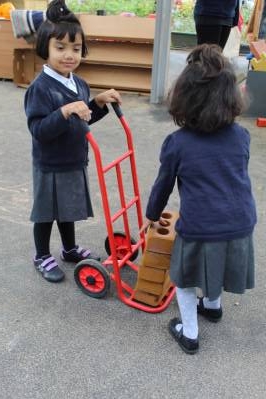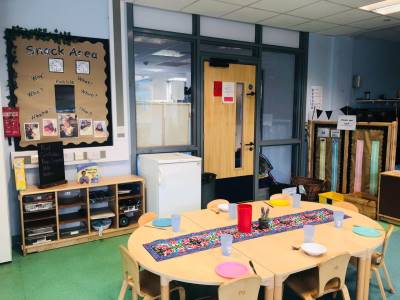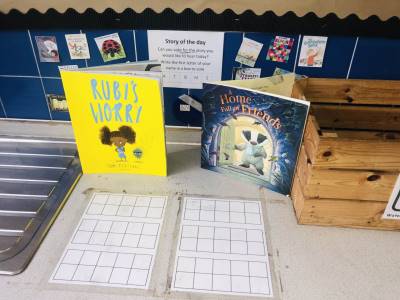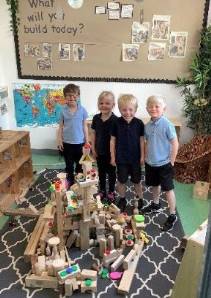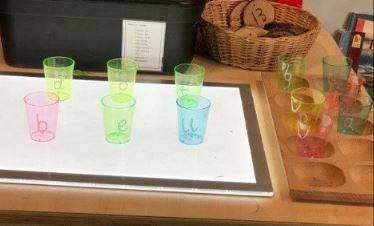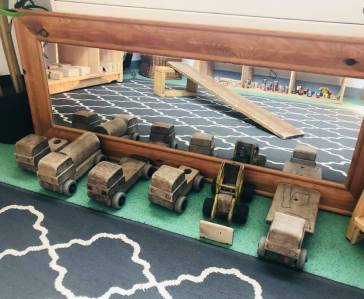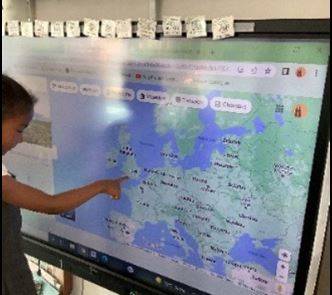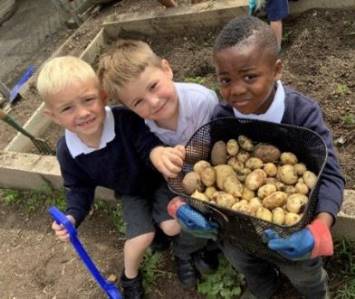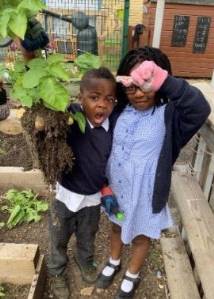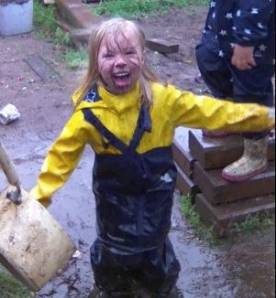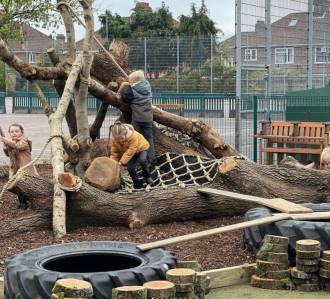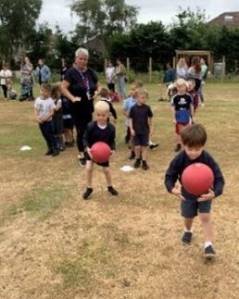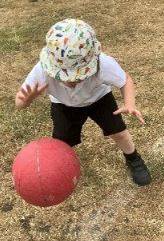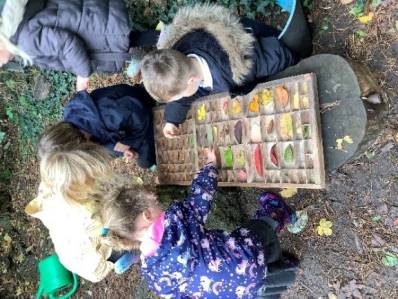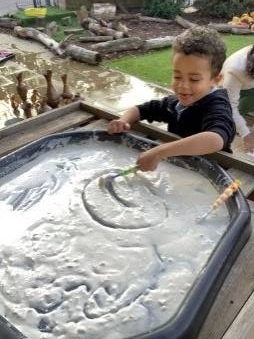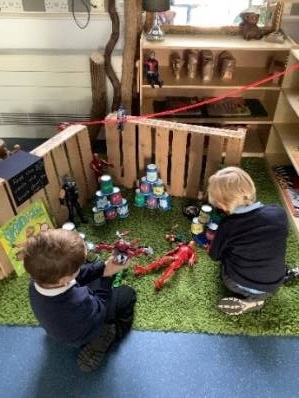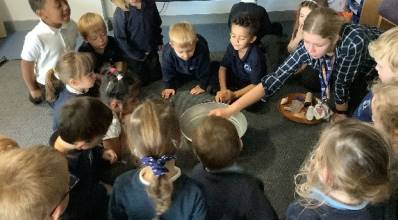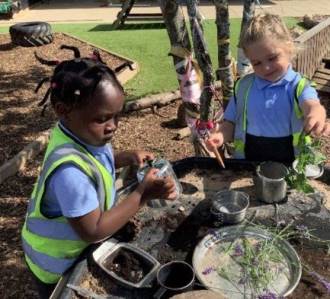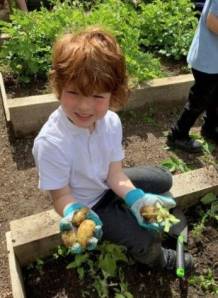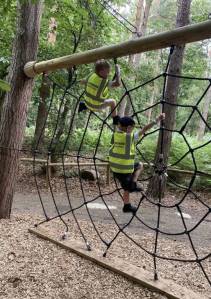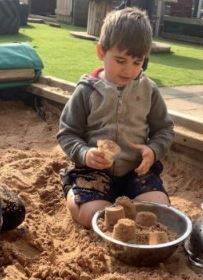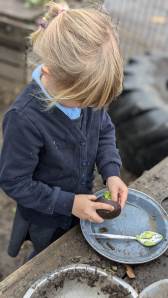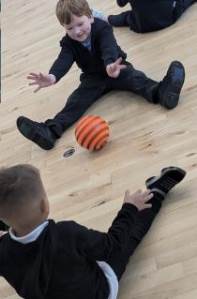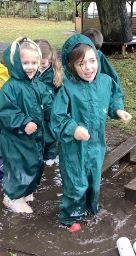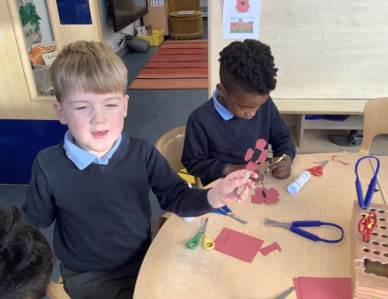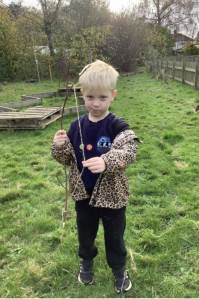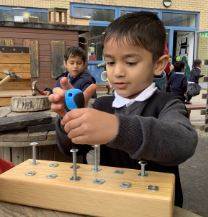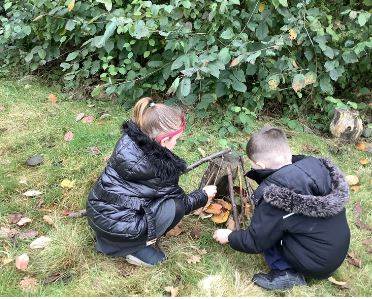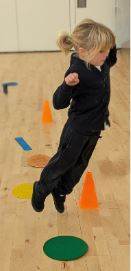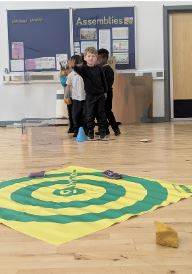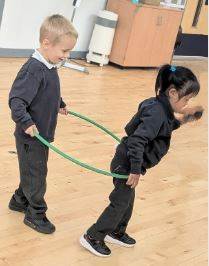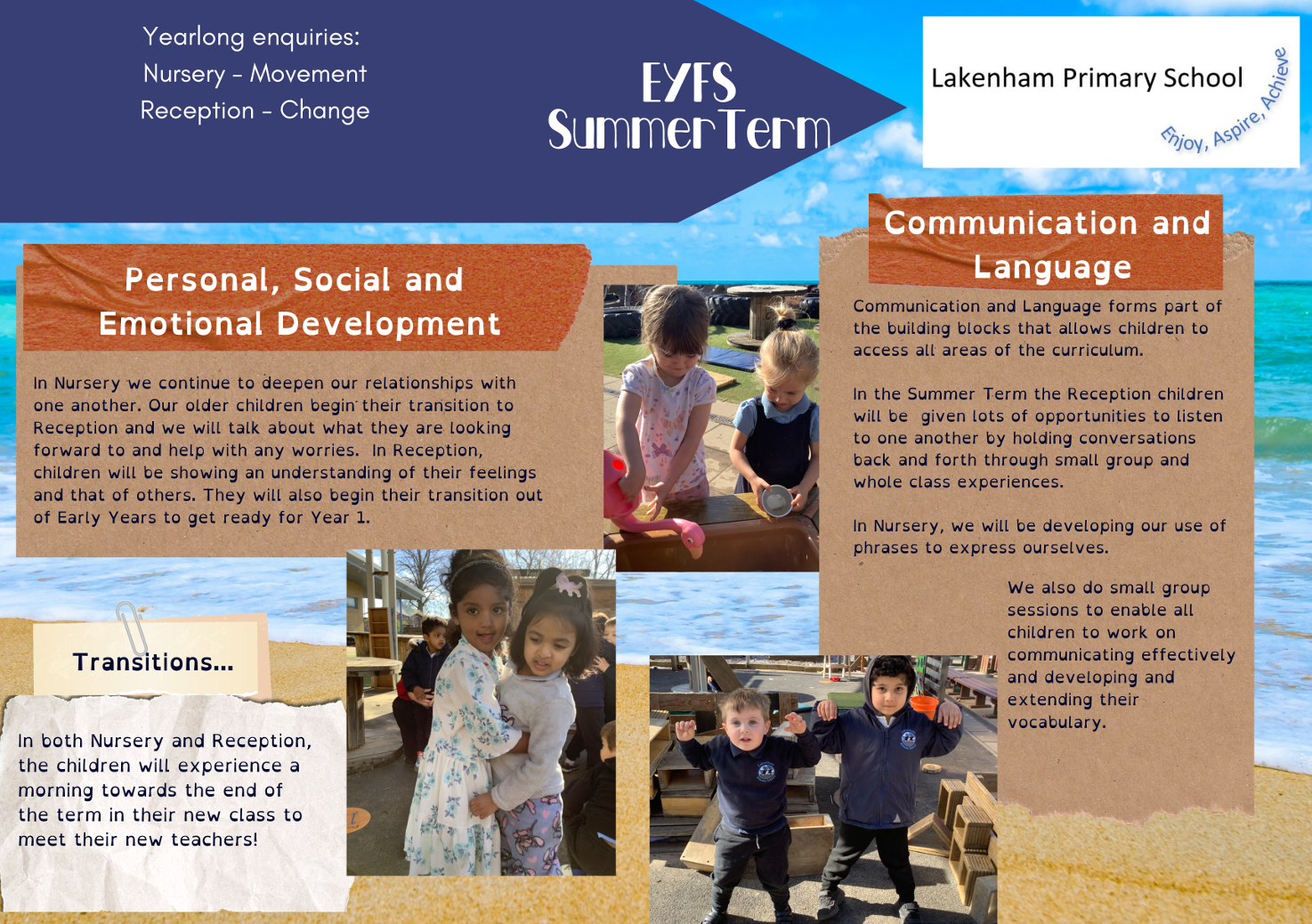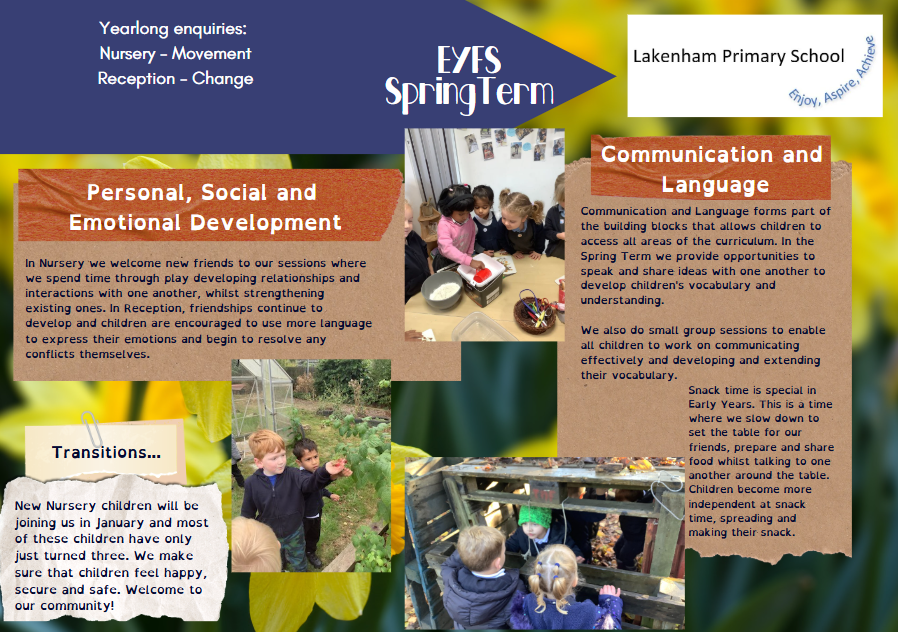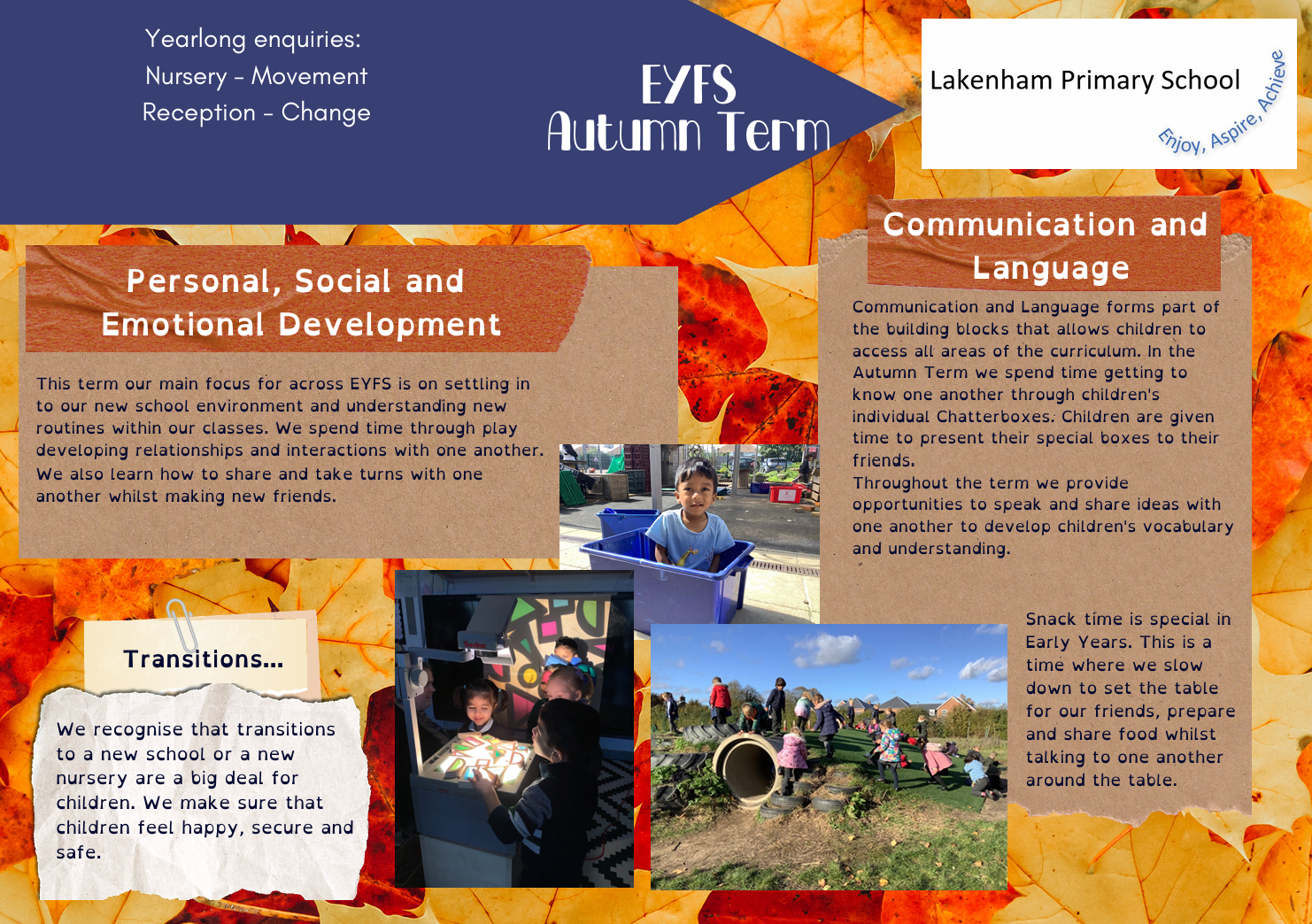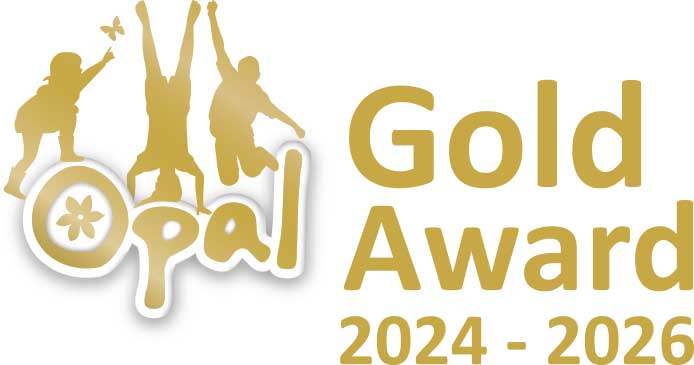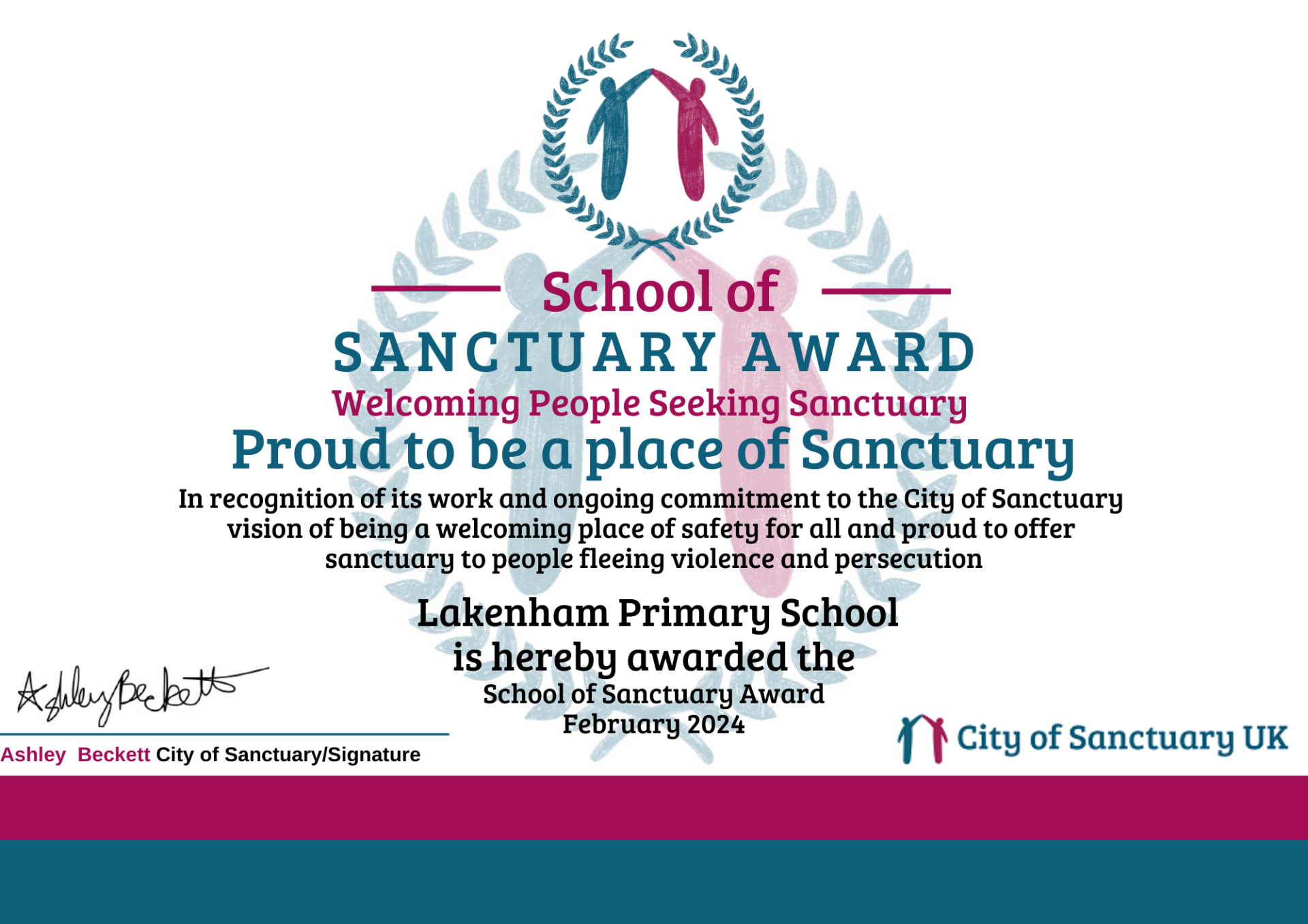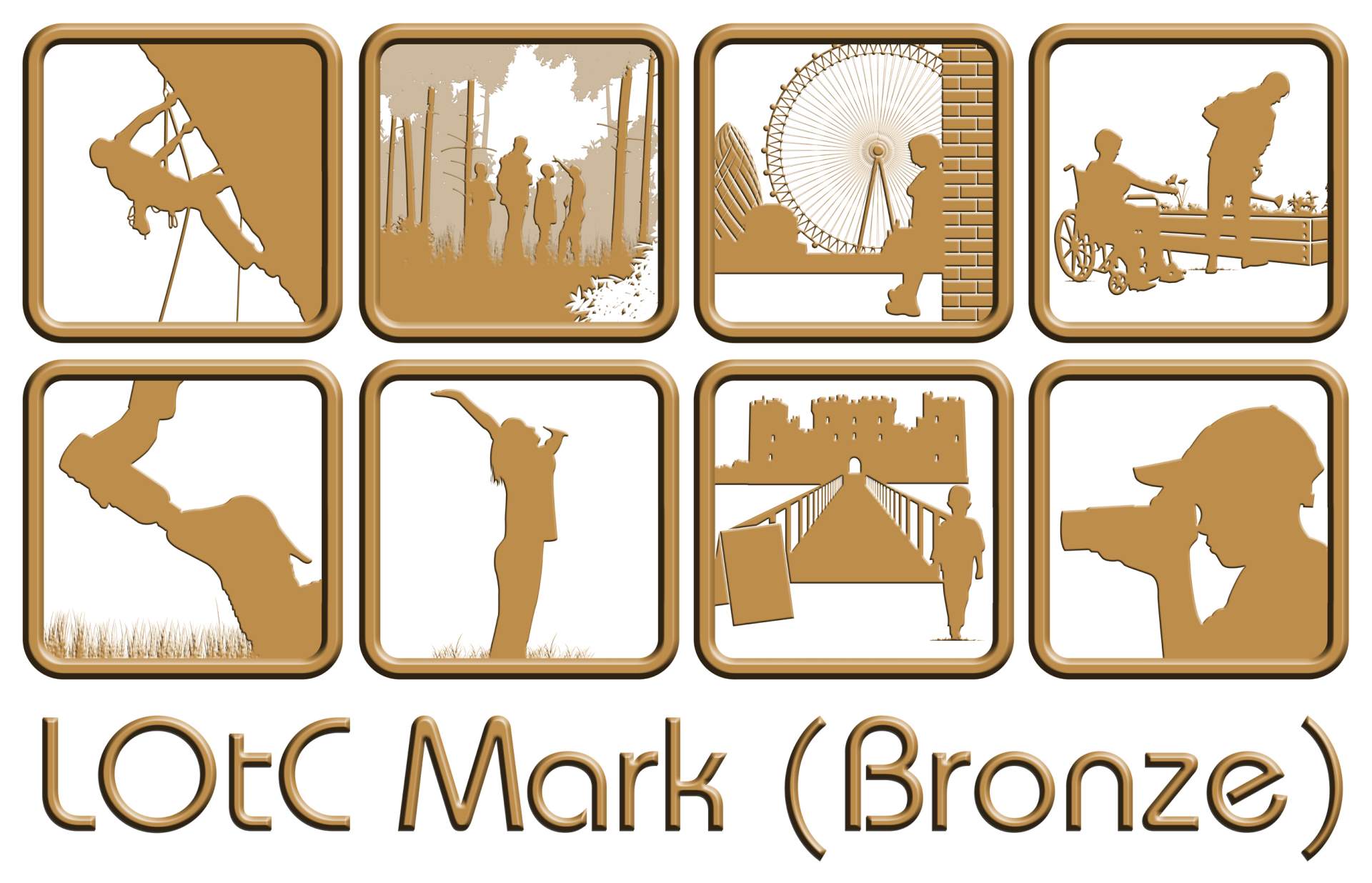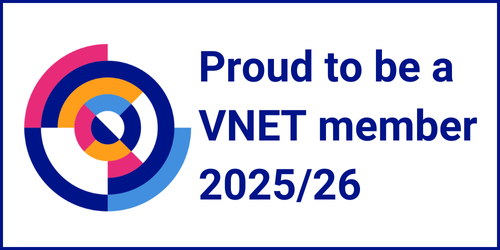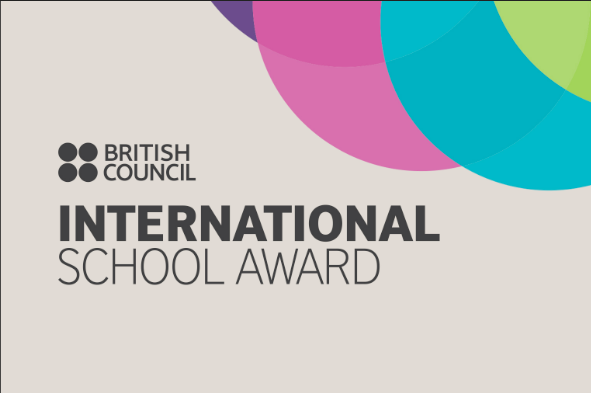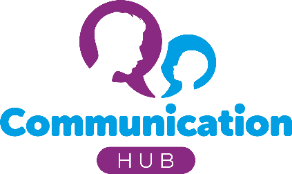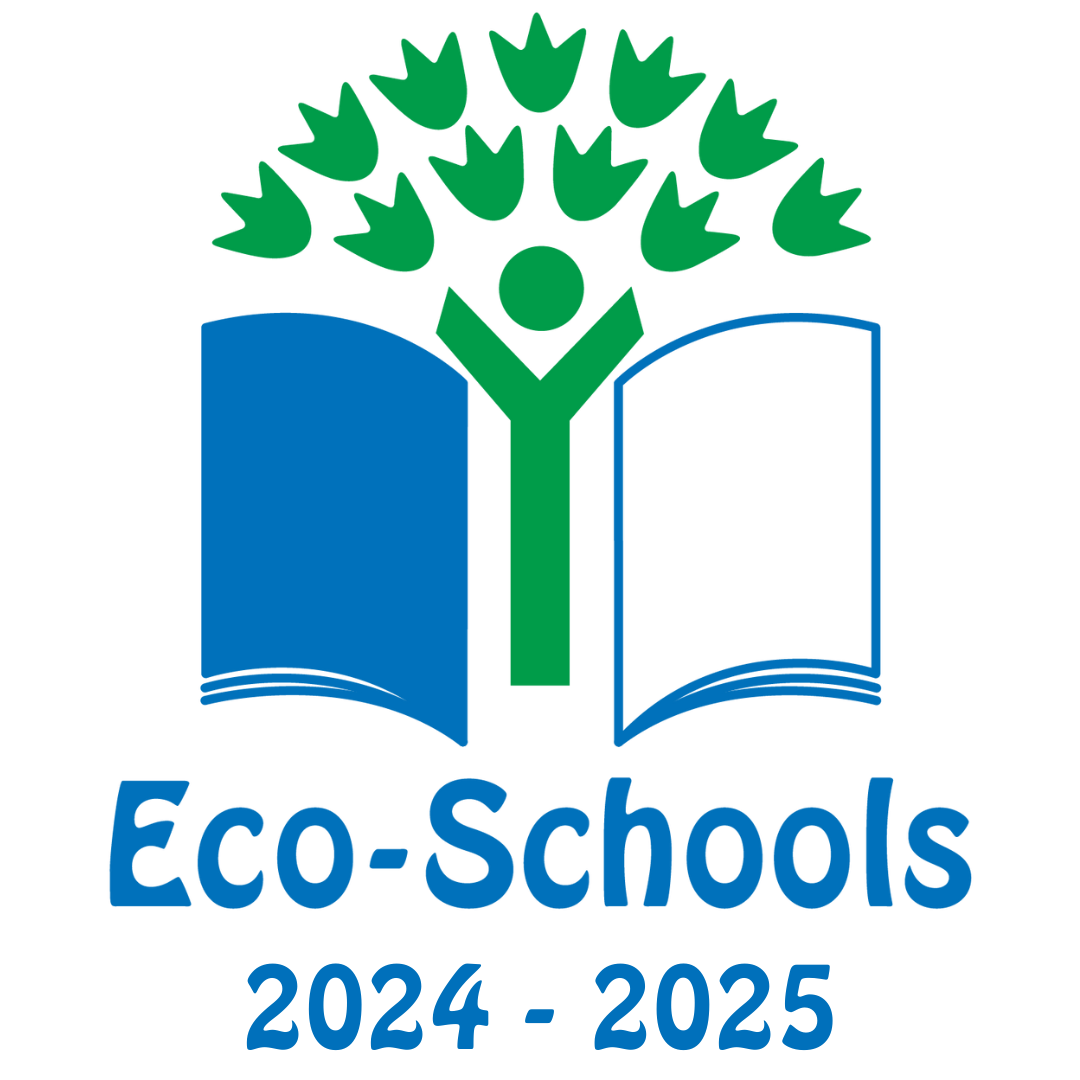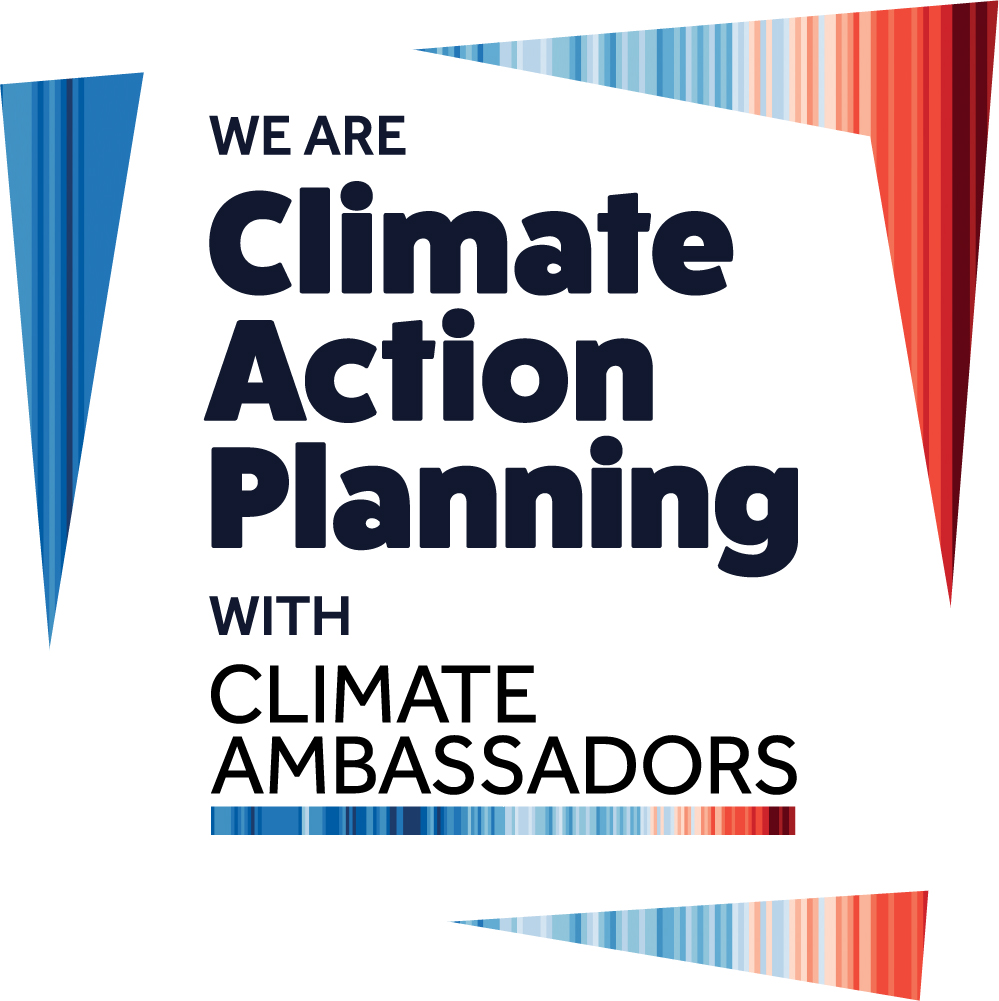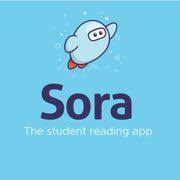EYFS - Reception
Reception
Learning at Lakenham from the beginning gives children an exceptional start to the journey through education. Children start in Reception in the school year they will turn 5. There are two classes who have a shared learning environment. They meet up with their individual classmates and adults at different points of the day, but the rest of the time, they can learn with whoever they choose, inside or outside.
The exceptional staff, ensures the environment is ready for the children to thrive within. The large outdoor learning environment is shared with the Nursery children. The children also have time in the larger school learning environment and love their weekly nature school time.

How to apply to join our school in Reception
Booklet for Parents Starting Reception
What are we learning about in EYFS - Reception 2024-25?
Summer 2025
Spring 2025
Autumn 2024
What did we learn about in EYFS - Reception 2023-24?
What did we learn about in EYFS 2022-23?
Continuous Provision
Each and every part of our environment has been carefully planned to support children's development within Reception and Nursery and provide them with opportunities to demonstrate the Characteristics of Effective Learning. Our environment consists of many different areas of 'continuous provision'. Continuous provision is the areas and resources which are always there for the children to explore, it is planned to be stimulating, engaging, purposeful and challenging. Our provision enables children to make choices and learn through child-initiated play. The provision is enhanced daily through 'set ups' which are linked directly to our curriculum and children's personalised next steps to enable strong learning and progress from all.
Here are some photos of some of our Continuous Provision areas...
Reception
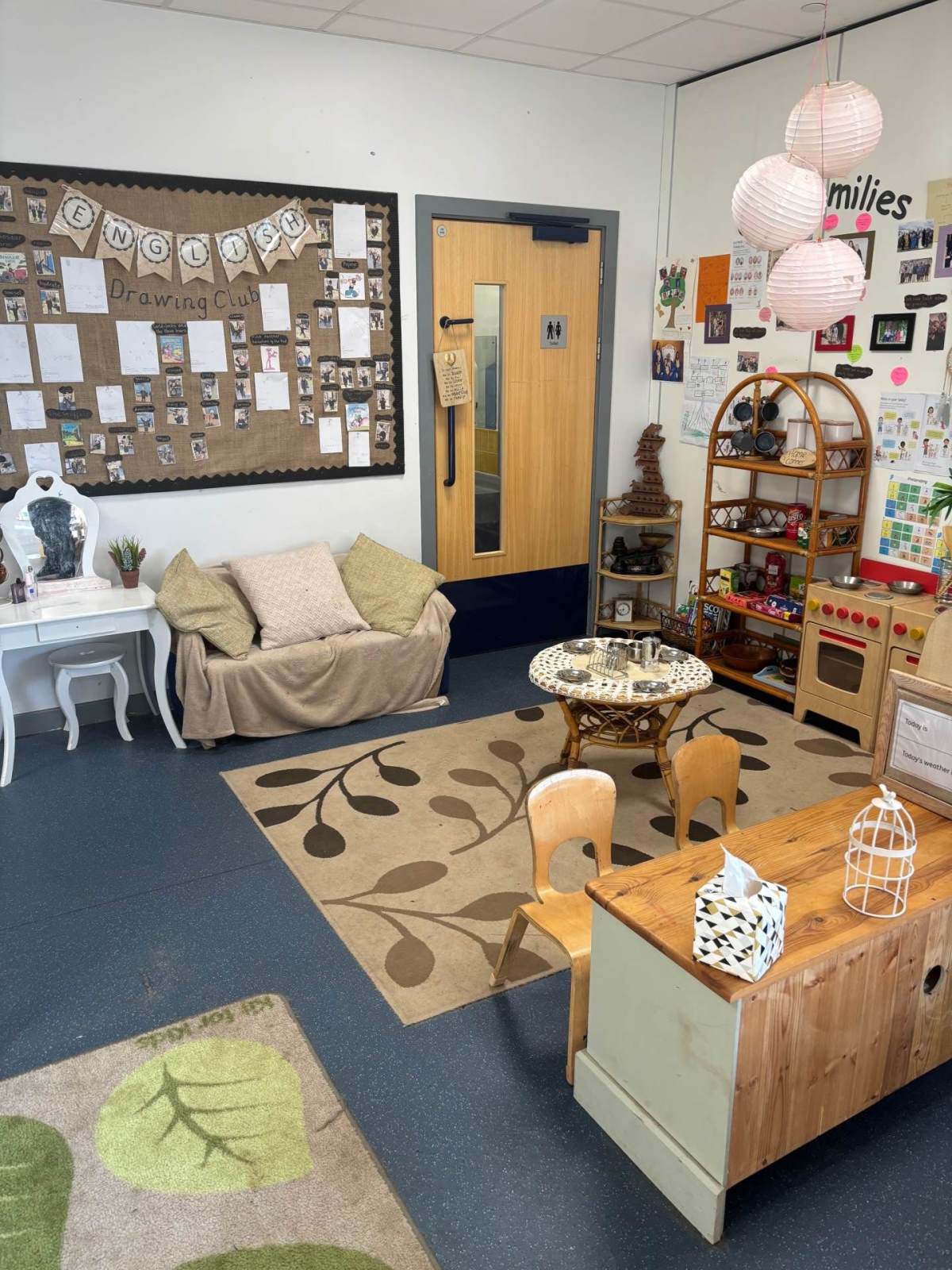
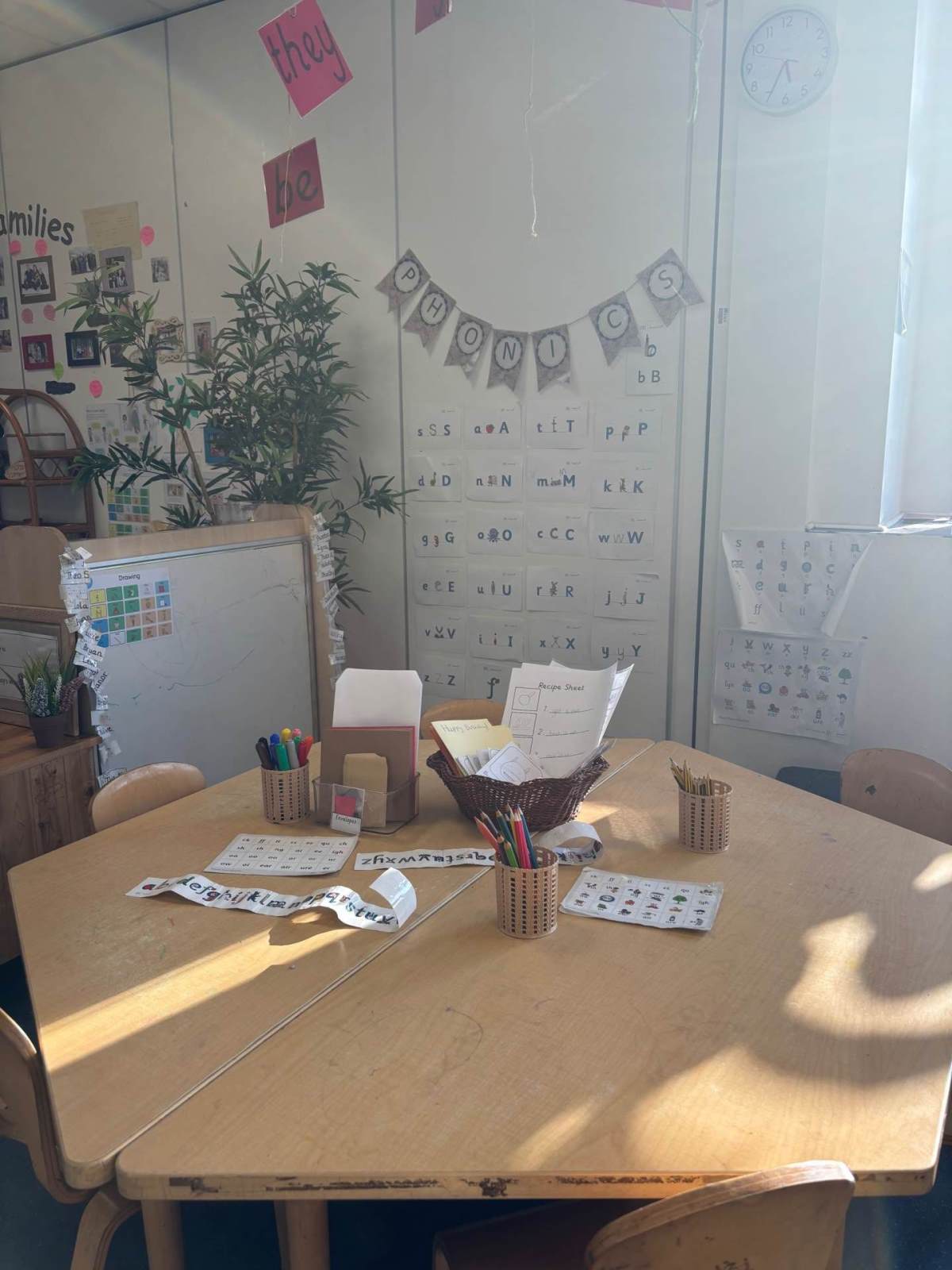
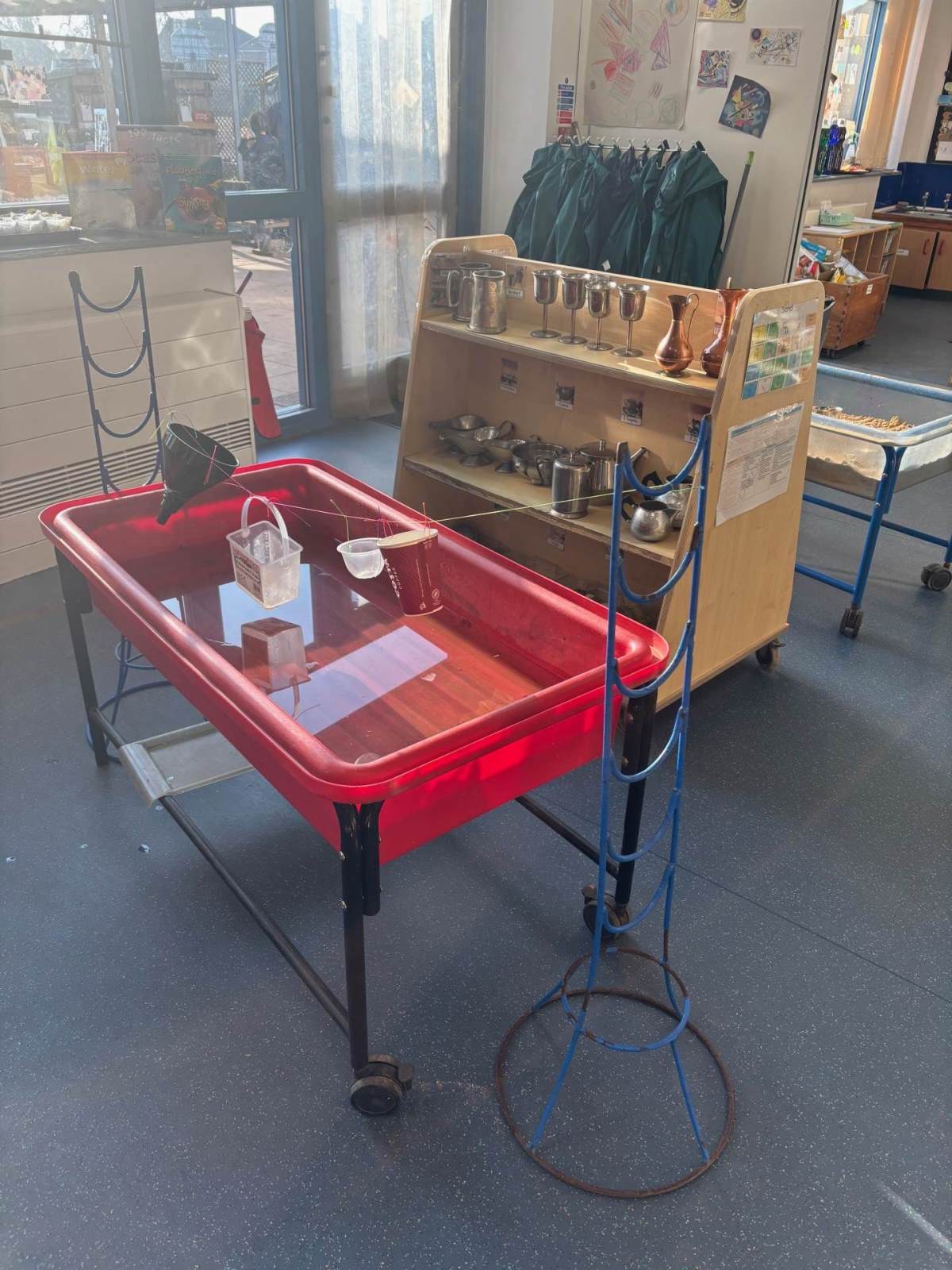
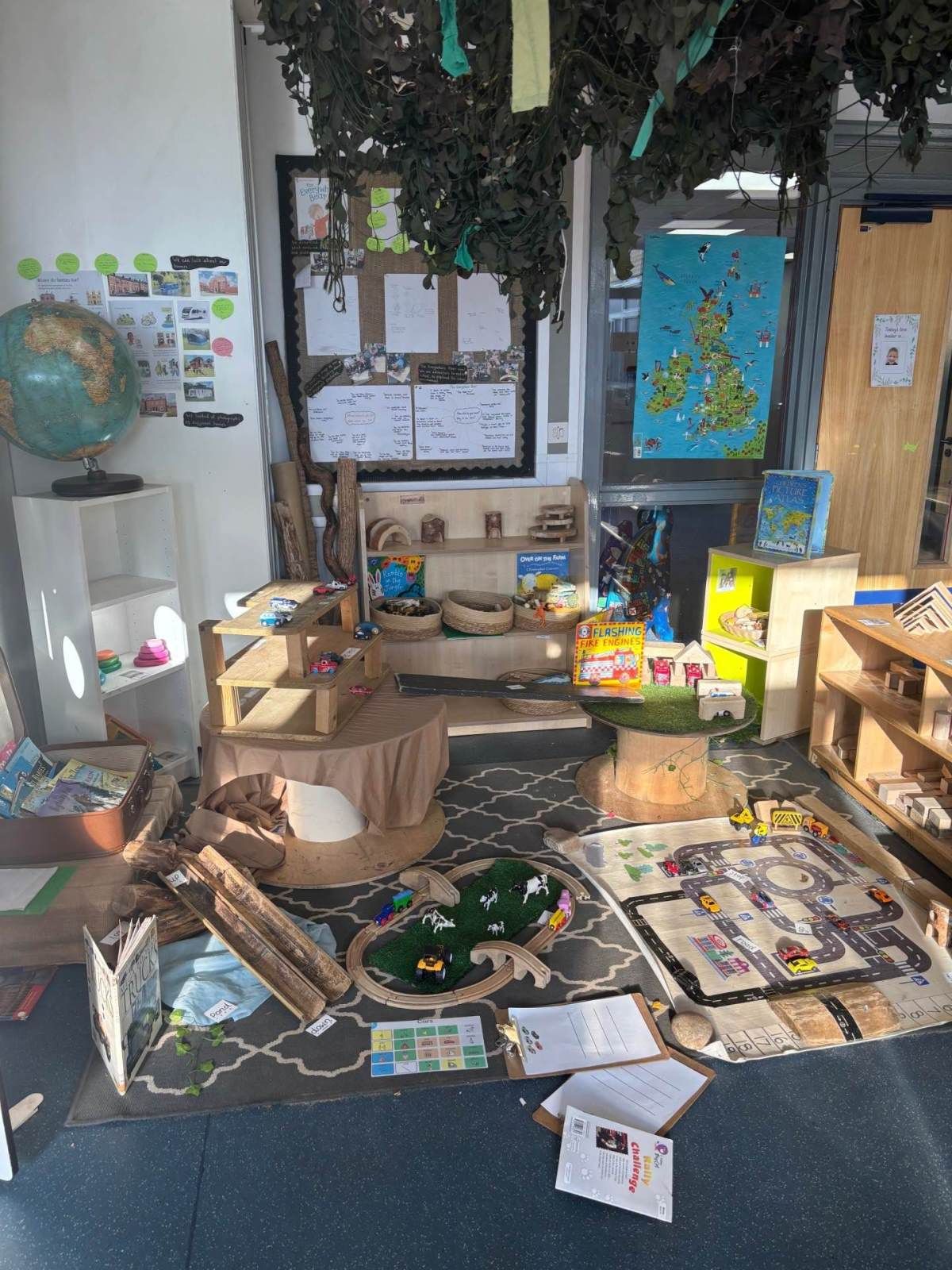
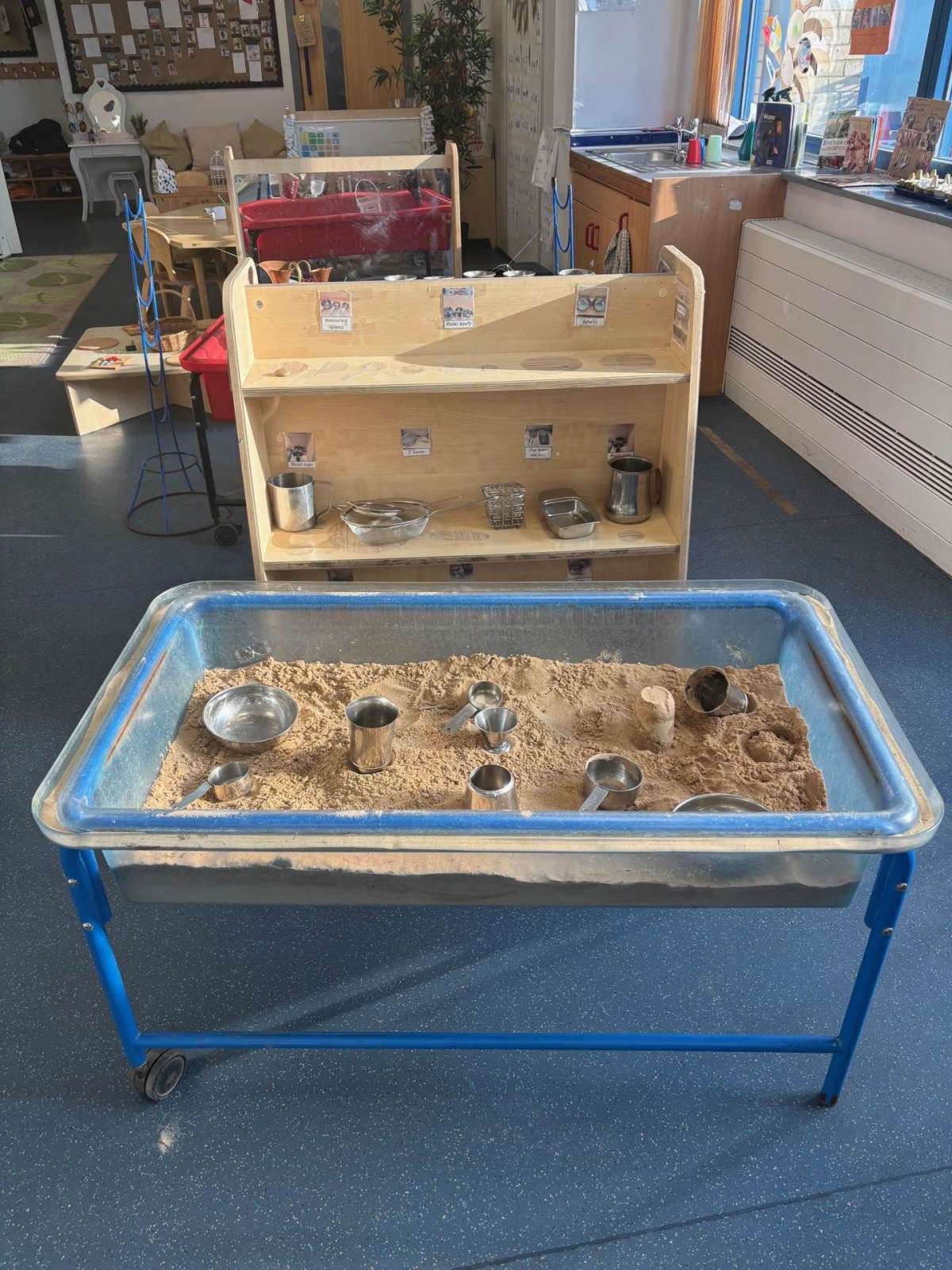
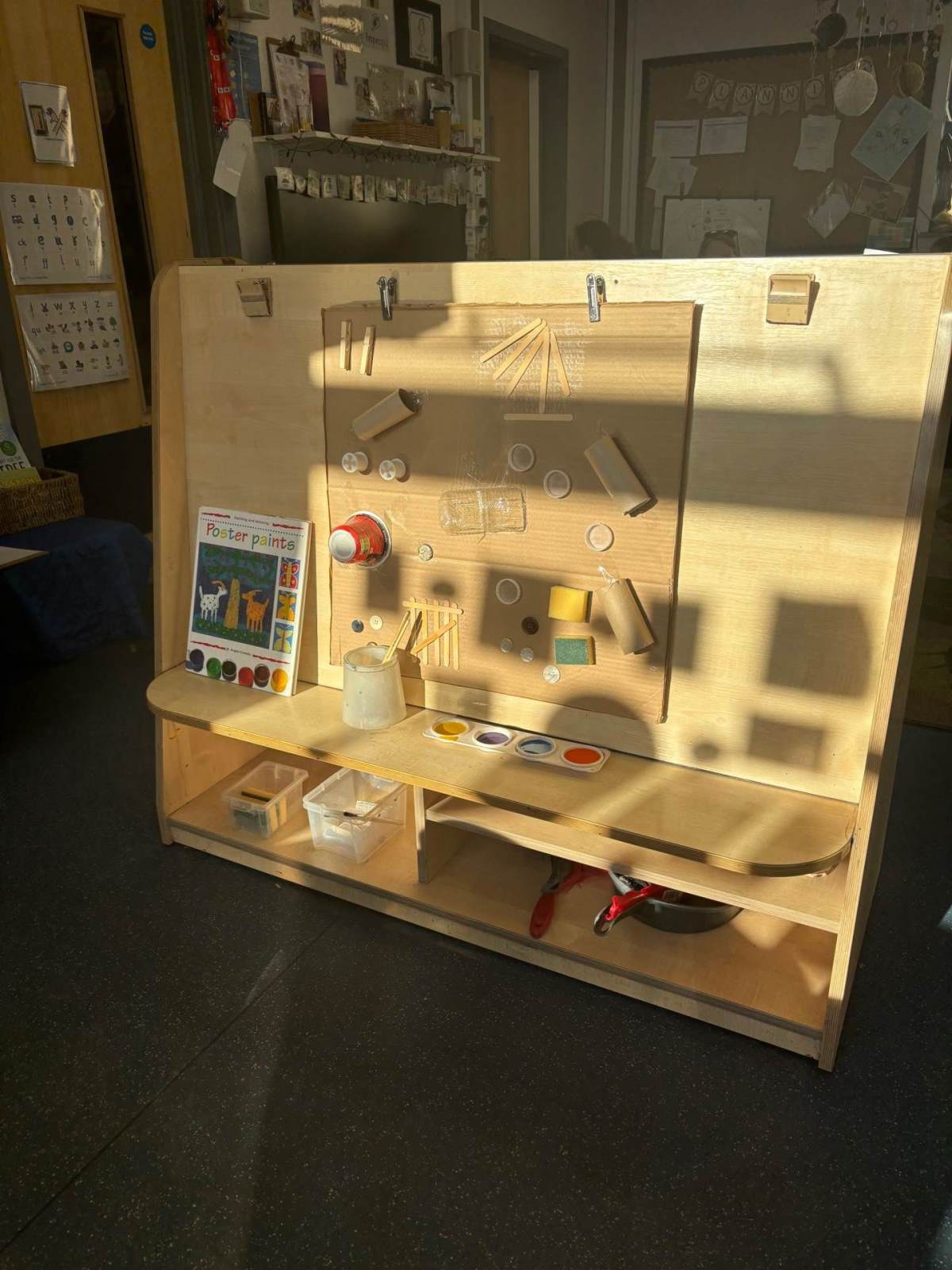
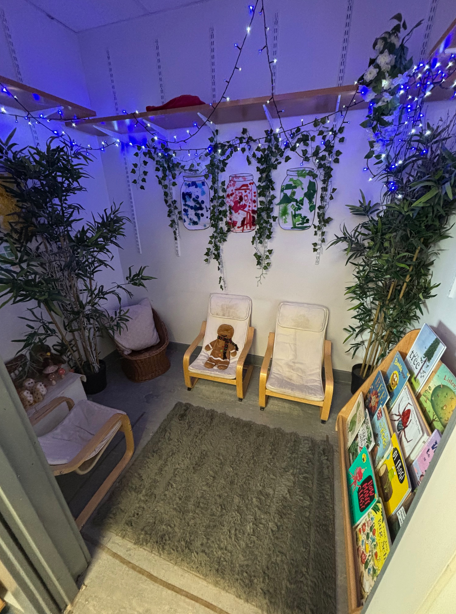
Reception
Our Daily Routine
We believe children need and benefit from uninterrupted periods of play so our daily routine allows two sustained periods of time for children to explore the continuous provision indoors and outdoors.
8:45am: Children and parents/carers arrive
8:45am – 9:00am: Open door, time for parents/carers to talk to the Reception staff.
9:05am – 9:45am: Phonics - taught whole class
9:45am: ‘Choose your own learning’ indoors and outdoors
9:45am – 10:30am: Snack bar is open
10.40am: Time to 'put things back where they belong'
10.50am - 11.10am: Maths
11.15am - 11.30am: Writing
11.30pm – 12:30pm: Lunch in the school hall followed by playtime in our outdoor area
12:30pm – 12:50pm: Carpet time, direct teaching English/Enquiry
12:50 pm: ‘Choose your own learning’ indoors and outdoors
2.50 pm: Time to 'put things back where they belong', then story time
3:30pm: Home time
Key Person
In Reception the class teacher/s is your child’s key person. This person will offer a settled relationship for your child and build a relationship with you. They will ensure that your child’s learning and care is tailored to meet their individual needs. All staff in Reception work closely with all children to build positive relationships, ensure they feel safe and cared for and support their individual needs, learning and development.
Learning at Home
We love to share and celebrate children's learning and achievements both in and out of school. Please use your child's Dojo account to share any learning at home with us, this may be photos, videos or a brief description of what they have done.
Assessment
We use a combination of teacher expertise, observations, pupil voice and parental voice to build a whole picture of the child's capabilities.
A rich picture of each child is built up over time across the seven areas of learning and development and we use the information to plan their next steps and inform our practice and provision. Each child is continuously assessed and any areas for development are addressed as the year progresses.
In addition Reception children are assessed against the national standard for a Good Level of Development (reaching the expected standard in Personal, Social & Emotional development, Communication & Language, Physical Development, Maths, Literacy). This information is shared with the Year 1 teachers so that they can prepare relevant and appropriate strategies and experiences when the children move out of Reception.
Class Dojo
We use the online platform Class Dojo to communicate with our families across our Early Years Foundation Stage. We share weekly updates on our year group pages to let you know what your child has been learning at school that week, alongside photos and videos showcasing their learning in action. Families are then able to see and talk to their child about their learning, with photos to support those conversations. You can also add comments to anything we upload and also upload any home learning or out of school experiences or achievements that your child may like to share with us. We will support you with setting up an account.
Becoming a reader
We want every child to develop a love of stories and books and so provide a wide range of books in our classroom. We have dedicated, comfortable reading spaces as well as integrating books into many different areas of provision. Stories are shared with children on a daily basis.
Every child takes home a story book to share and enjoy with their family from the beginning of the year. Once they have been introduced to the phonics approach and have started to develop an understanding of how use phonics to decode words they take home a reading book that they can read to their family.
Their understanding of phonics is built on the strong foundations that are established in Nursery and followed through into Reception. We use FFT phonics which is a DFE recognised phonics scheme which introduces the children to all the sounds they need to learn to be able to become a confident, fluent reader. To find out more please look at the clips below.
We also offer Phonics Cafes to help you as understand how your child is taught phonics.
It is important to pronounce the sounds clearly this short video will show you how.
Becoming a writer
Writing is a complex skill that takes several years to master and refine. It is vital that children develop all the large muscles in their body through crawling, climbing, jumping, balancing, sliding, running etc and so we provide many opportunities for them to develop their physical strength and stamina.
They also need to develop good hand-eye coordination, a pincer grip and other fine motor skills and so in school they will have many opportunities to
- use scissors
- use tools for woodwork
- use a wide range of mark making resources - pens, pencils, paintbrushes, felt tips, chalks etc.
- use construction kits such as Lego and Knex
- play regularly with playdough, mud and clay
- manipulate cutlery and cooking utensils
They learn to form actual letters during our phonics sessions and children are always encouraged to form their letters correctly when writing independently.
As the year progresses any visitor to our classroom will see signs, posters and labels made by the children telling people not to touch something, describing and naming their models and many more. We actively encourage children to communicate using their emerging writing skills as well as model possibilities constantly during their play.
Our aim is that by the end of the EYFS journey our children enjoy the writing experience, view themselves as writers and are confident to have a go.
The Early Learning Goal for writing for the end of Reception is: Children use their phonic knowledge to write words in ways which match their spoken sounds. They also write some irregular common words. They write simple sentences which can be read by themselves and others. Some words are spelt correctly and others are phonetically plausible.


